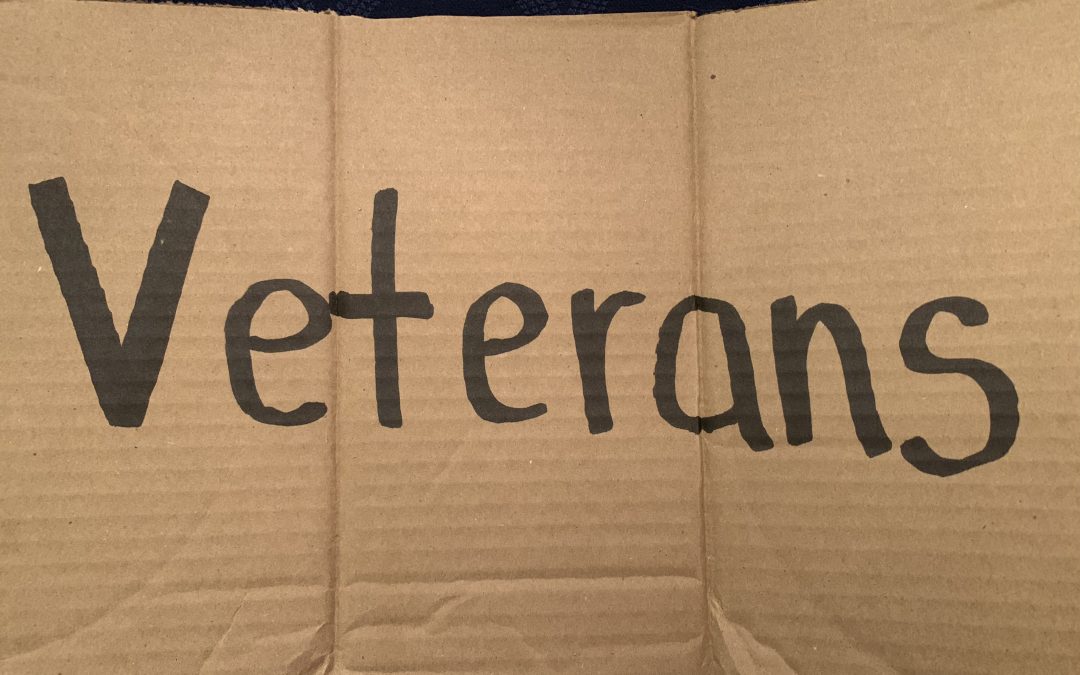“Our nation’s veterans may face invisible wounds of war that may make them more vulnerable to homelessness.”
Perhaps we need not say more than this: The estimated number of dollars ($20 billion) for ending homelessness in the US is 30 times less than the annual military budget. If we can afford to fund war, can we then at least wage war against homelessness?!
Let us begin with the positive side of homelessness among veterans. The current estimate for homeless veterans is approximately 40,000. This number marks a more than 50 percent decrease nationally since 2010. 2018 numbers have dropped 5 percent from last year. That is an extremely significant improvement and signifies a very positive trend. The Obama administration’s goal of ending all veteran homelessness by 2015 led to New Orleans being the first city to do so. Now three states – Connecticut, Delaware, and Virginia – have also eradicated veteran homelessness.
Still, 40,000 veterans lack stable living situations. Why? Well, first and foremost, veterans are no less susceptible to the challenges of society than anyone else. Many veterans have low socio-economic status while many others have skills that do not transfer into mainstream society. Lots of veterans lack social support communities back here and deal with feelings of alienation from society. Perhaps the root of all of these issues, however, is the trauma that comes with going to war. Many veterans experience Traumatic Brain Injuries – many others experience PTSD, varying in severity. Often, these illnesses, injuries, and disorders go undiagnosed and / or untreated. Substance abuse – alcoholism, opioids and others – are often not the root cause of homelessness but the coping mechanisms that veterans use to deal with underlying trauma.
The average homeless veteran served in the Vietnam War and is a single male (91 percent) between 51 and 61 years old, living in a city. Most likely he has a disability (54 percent). Though only 11 percent of the total veteran population, black veterans comprise 39 percent of the total homeless veteran population. There are many younger veterans from the most recent wars in the middle east, yet it is expected that we will see an increase in veterans over the age of 55 in the next 15 years.
What do veterans need? This is from the National Coalition for Homeless Veterans (NCHV):
“Veterans need a coordinated effort that provides secure housing, nutritional meals, basic physical health care, substance abuse care and aftercare, mental health counseling, personal development and empowerment. Additionally, veterans need job assessment, training and placement assistance… all programs to assist homeless veterans must focus on helping them obtain and sustain employment.”
What can WE do to help homeless veterans?
“Government money, while important, is limited, and available services are often at capacity. It is critical, therefore, that community groups reach out to help provide the support, resources and opportunities that most Americans take for granted: housing, employment and health care. Veterans who participate in collaborative programs are afforded more services and have higher chances of becoming tax-paying, productive citizens again.”
I invite you to research organizations in your community that are already lending a hand towards homeless veterans. You can donate time, money, or even just spread awareness of this issue. In a country who cares as much as we do about national defense, let us at least defend our troops at home!
http://nchv.org/index.php/news/media/background_and_statistics


Recent Comments